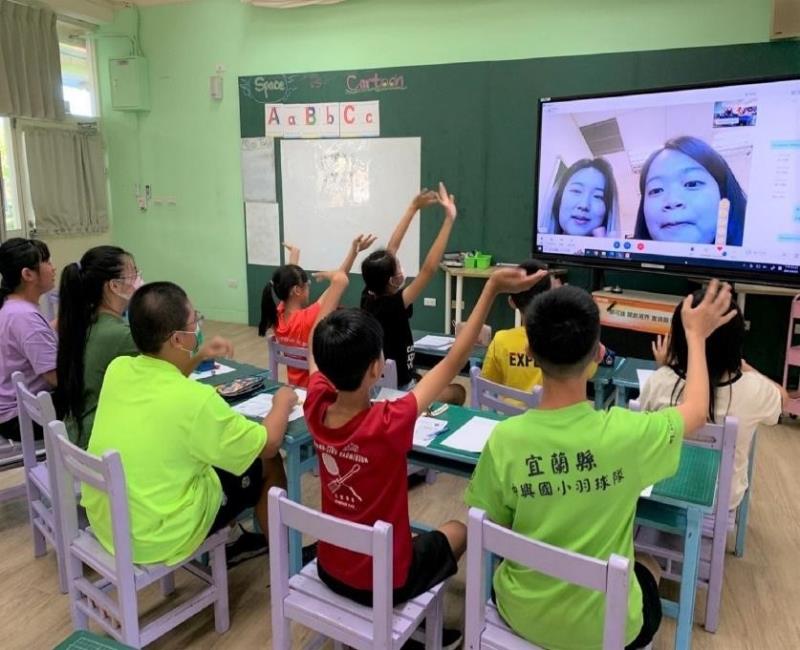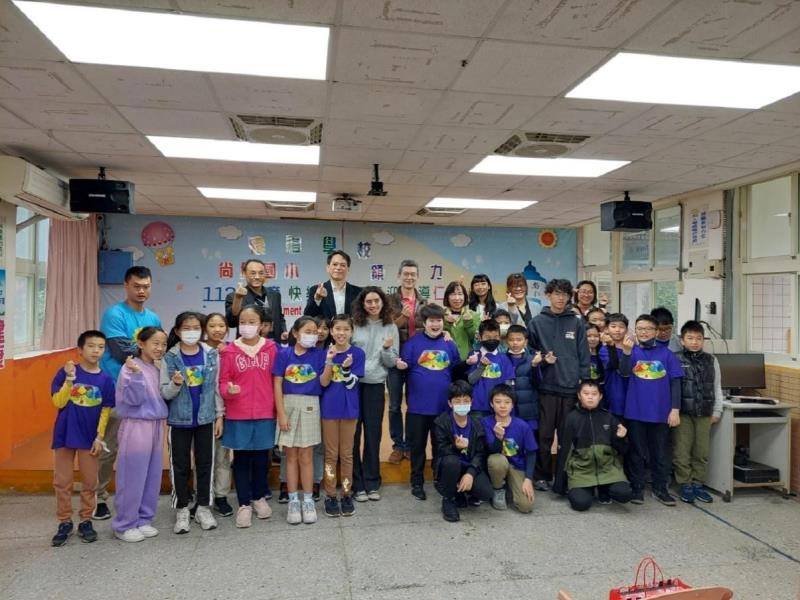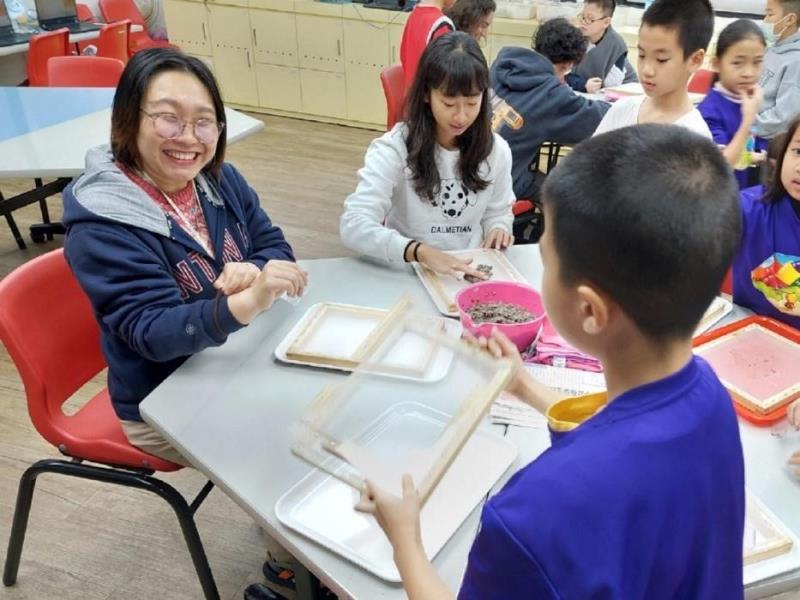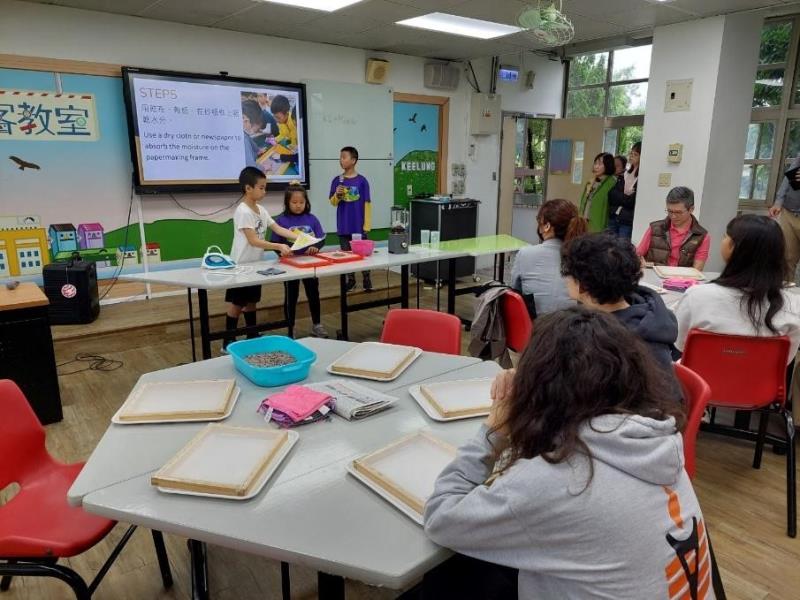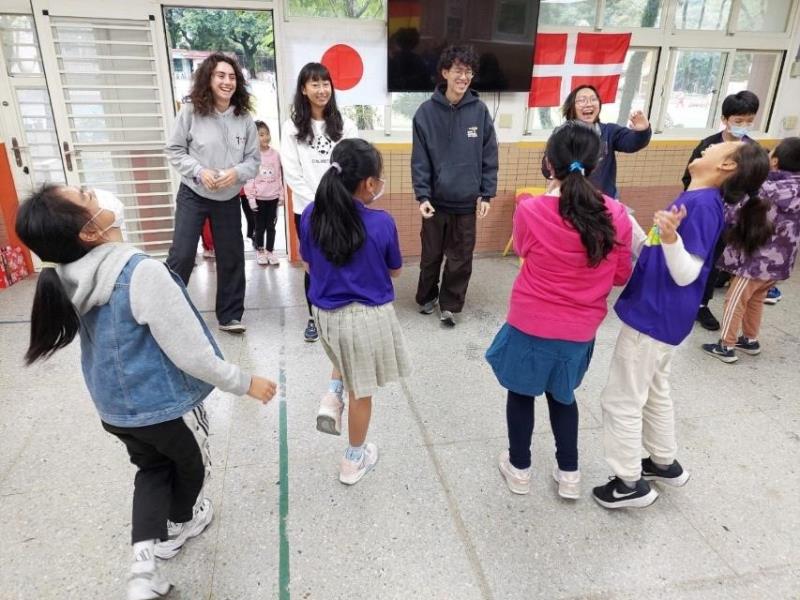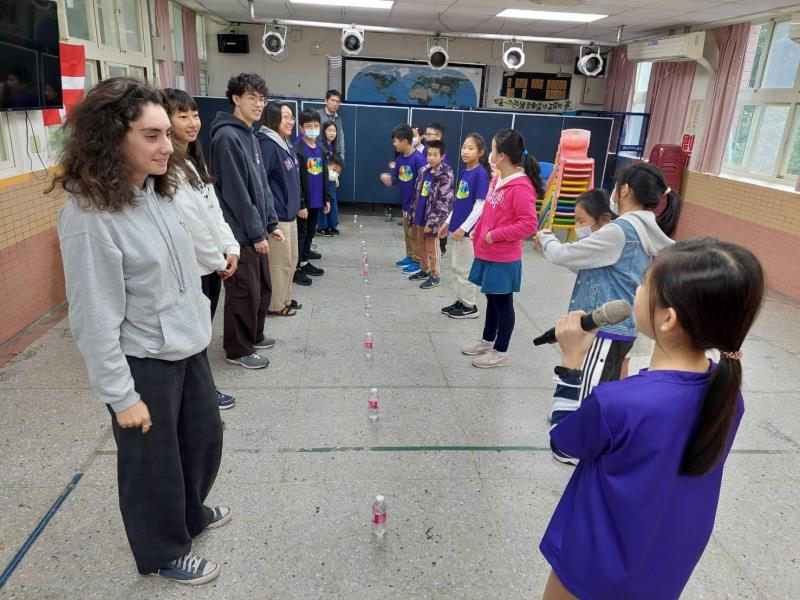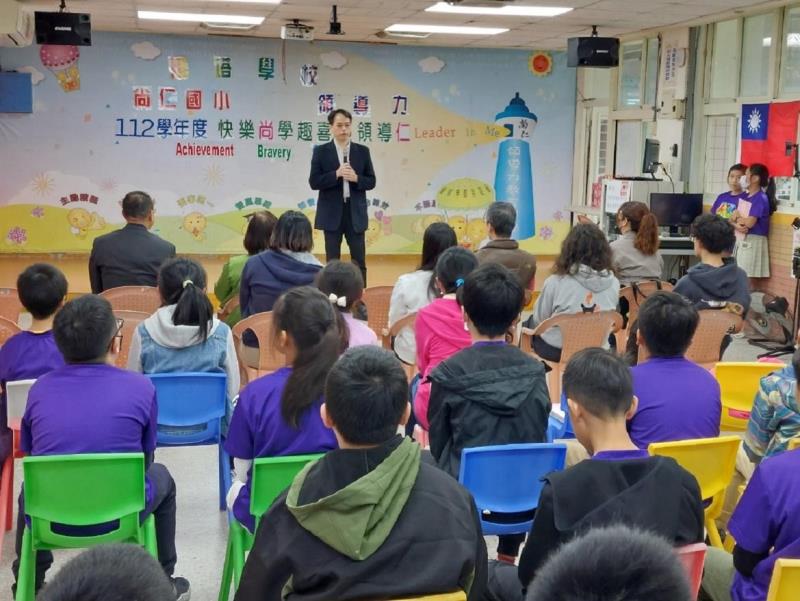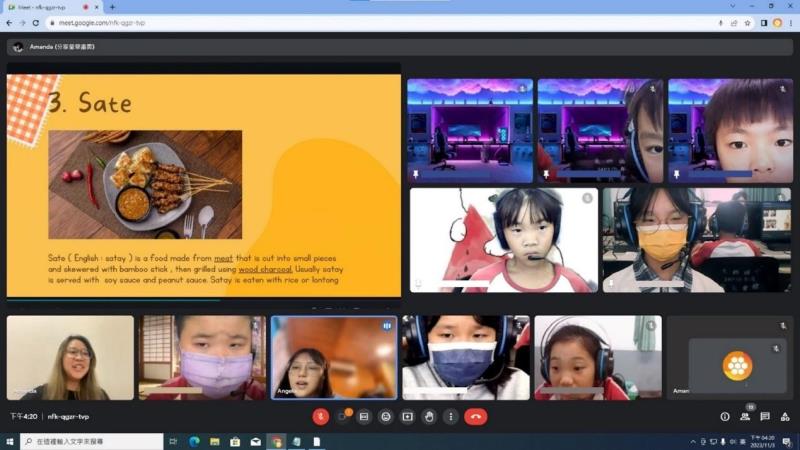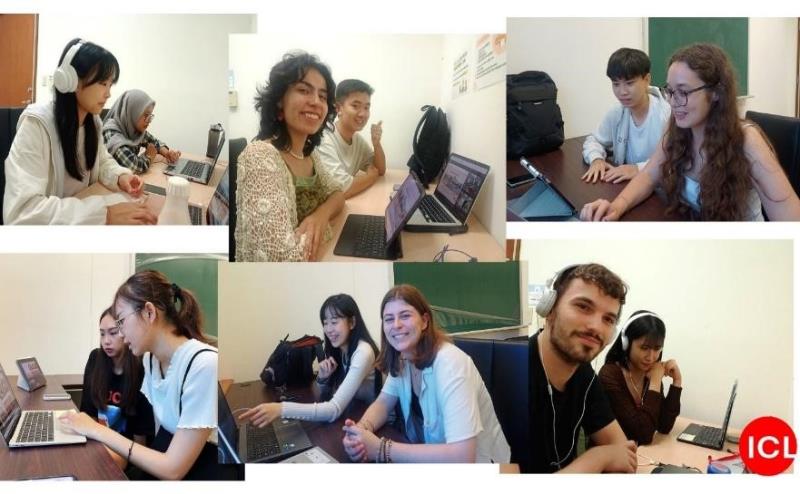Making Friends with International Companions: Nearly 700 University Companions Led Students to Explore Internationalization
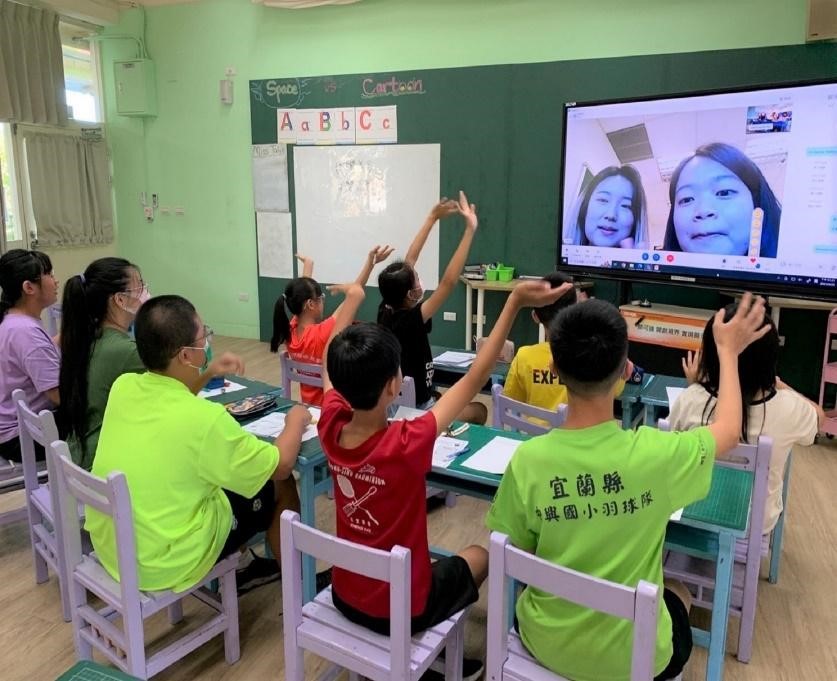
In order to provide primary and junior high school students with cultural and life-oriented English learning opportunities as well as to enhance the international communication and the coordination of problem-solving skills of young people in Republic of China (R.O.C., Taiwan), the Ministry of Education (MOE) has commissioned National Taiwan University (NTU) to organize the International Companions for Learning (ICL), which encourages primary and junior high school students to interact in English with foreign university or college students who come to study in R.O.C., Taiwan through after-school video exchanges and once-a-semester "Meet and Greet" activities. Importantly, in the academic year 112, nearly 700 university or college companions were recruited to serve 160 primary and junior high schools across the country, benefiting nearly 4,000 students. Each foreign university or college companion is paired with a local student in university or college to provide a natural bilingual learning environment and enhance the students’ motivation to learn English.
On December 5, 2023, Deputy Director Ren-Jie Chiou of the Department of Information and Technology Education of the MOE and the host of the program, Professor Jiun-Huei Proty Wu of NTU, led a group of university and college partners from France, Denmark, Germany, the United States, Japan, Vietnam, and our own country to the partner school, Shang Ren Elementary School, in Chidu District, Keelung City, to “Meet and Greet” with their primary school partner. Upon the arrival of the activity team, the students of Shang Ren Elementary School greeted them by playing ceramic flutes, and then members of the String Club performed three songs from different cultures, namely “Pug and the Pussycat,” “How to Train Your Dragon,” and “the American Folk Dance,” to welcome the university or college partners from different countries. After the opening ceremony, Grade 5 students started with the ice-breaking game “Simon Says”, which allowed the university and college students and their primary school partners to get acquainted with each other in a joyful English atmosphere, fostering communication. The primary school partners then hosted the university or college partners to “break through the barrier”, and the children of all grades explained to the university and college partners the services they would provide to the university or college partners. For example, first graders served the university and college partners with herbal tea from the school garden and courageously and confidently introduced themselves and shared their favorite campus facilities. Then they had an excellent time playing the Magic Word board game with their university and college partners. Sixth graders then introduced the school's special programs by explaining clay kneading skills and made light clay creations with their university and college partners.
Mr. Ren-Jie Chiou, Deputy Director of the Information and Technology Education Department of the MOE, said that through the real-time service of network resources, primary school partners are able to communicate with their university or college partners online every week, not only to learn about each other's cultures but also to share their daily lives and resources in the local environment. In the context of physical “Meet and Greet” activities, the university and college partners and primary school partners can form closer bonds together and create links, and the primary school partners will want to become friends with their university or college partners because of this. Primary school partners will also learn to communicate more actively in English because they want to become friends with their university or college partners. Mr. Jin-fang Yang, Principal of Shang Ren Elementary School said that the ICL allows participating students to discover the true purpose of learning English. Not only do the local students get to learn more about their international partners from different countries but they also have the opportunity to learn to recognize and respect the spirit of multiculturalism through exposure to different customs and cultures. More than that, by partaking in these engaging activities, and hopefully through engaging activities, and this will inspire the students to explore the international world.
Professor Jiun-Huei Proty Wu of NTU explained that after university students independently apply for participation in the program, they need to pass the evaluation and training before they can be matched with primary and junior high schools, and that foreign university or college companions are all current students or exchange and visiting students from top universities in R.O.C., Taiwan. Local university or college companions are responsible for communicating with primary and junior high schools in R.O.C., Taiwan as well as undertaking the translation work, course assistance and preparation work when necessary. During the semester, in addition to introducing in English the food, clothing, housing, and transportation of their own countries, the university or college companions will also share cultural differences, economic activities, politics, and livelihoods, while the primary school partners will be able to practice sharing and explaining in English the local life and culture of R.O.C., Taiwan.
According to statistics, more than 80% of the primary school partners have increased their opportunities to use English through the ICL, and more than 90% of the primary school partners are interested in continuing to participate in the ICL after they have participated in the program. Overall, the ICL promotes the development of primary and junior high school students’ English proficiency, and it also gives foreign students studying in R.O.C., Taiwan the opportunity to learn more about the unique features of local towns and villages. Furthermore, local students are able to improve their cross-cultural communication skills and prepare for international mobility. In the future, the MOE will continue to support these kinds of programs in order to accelerate the cultivation of young international talents and the internationalization of primary and junior high schools in R.O.C., Taiwan, as well as to effectively reduce the gap in English proficiency between urban and rural areas.

